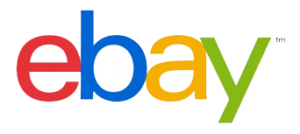I have been searching for a proper answer to this question, have a bit of background in front end development, but with new concepts like SaaS, PaaS, etc. want to get information from experts out there, that could help any newbie to understand what it’s all about.
Say I am trying to develop eBay like an app that takes a product from a user and sells it back to the other user who needs it.
Will my app need a backend server? If so why? I am already uploading my app to Google Play Store or Apple Store.
How will the backend server like HEROKU or FIREBASE or AWS help my app?
Can I implement two different services in single app, say for eg., firebase for backend database and HEROKU for payment processing?
Thanks again for your time and information.

 Question posted in
Question posted in 

2
Answers
Unless you are experienced with building distributed applications that can persist data across multiple nodes in a consistent manner, and ensure data available, I’d say you most definitely need some kind of backend. Unless of course you only plan to have user-to-user transactions, that can rely on direct messaging between client applications – which seems pretty pointless and quite far from the requirements of an EBAY-like product.
In terms of the architecture, you can follow many different approaches, but in most of them you will require some sort of data access layer. I’d recommend looking into the three-tier software design pattern (https://en.wikipedia.org/wiki/Multitier_architecture) to better understand the way this type of software product is typically designed.
After sorting out which type of data persistence you prefer, you’ll need to setup the backend where your mobile app will connect to retrieve the data from (things like products being sold, user profiles and ratings, your own history). Of course you could also connect directly to the database from the app, but that would be a big mistake – it would meaning making the DB access publicly available, and thus exposed to attack, not to mention that you would be hard-pressed to find a solution for user registration and authentication, which would have to be provided by other means anyway. Typically your backend will also manage user registration and authorisation.
Heroku, Firebase and AWS are all very different, each with their strengths and weaknesses, but there’s nothing like trying them out to see what fits best. What you refer to as “Google Server” and “Apple Server” sounds like a misconception, and you probably mean the Google Play Store and the Apple Store. These are not applicational servers that you can use as a backend, and serve only as a repository for your mobile app from where users can download it, and nothing else.
Without some sort of backend mechanism, the challenge of making data available for the consumption of multiple users would be overwhelming.
I know this isn’t a very specific answer, but your question is quite broad-reaching, and it seems you need to look into some basic fundaments of software engineering before going into more detail.
SaaS
Answer: SaaS stands for "Software as a Service". In layman’s terms, someone developed some software and hosted it somewhere. You can use that hosted software in your software project/product as a third party service (like public API); or directly use that as individual software under some license like Firebase as mentioned.
PaaS
Answer PaaS stands for "Platform as a Service". In layman’s terms, someone configured some hardware and exposed the hardware controls via some web based application or REST APIs. You can use that hardware to deploy/run/manage your application without having the actual hardware on premises.
Backend Server
Answer First of all, let me explain the server. The server is a middle-man who serves whatever is requested of it, and all browsers/mobile apps act as client. So for example, the web is all about client-server communication.
So taking the example you mentioned, an eBay-like app takes a product from a user (client action) and puts it on the server (client requests in background for server to put product on server). Then another user opens the app (client action) and searches for the product (mobile client requests server to return that product, if valid and matching search criteria), and then he can buy it (mobile client will request server to complete the purchase).
You have to understand that for any communication between web application, mobile application or desktop application, there will always be a server. Even in file sharing applications like shareit, one mobile app works as server and same mobile app elsewhere works as client.
Yes, backend servers like Heroku or Firebase or AWS will help your app to complete your application business flow.
Yes, you can implement two different services in single app, say for example, Firebase for backend database and Heroku for payment processing or hosting your application/APIs.